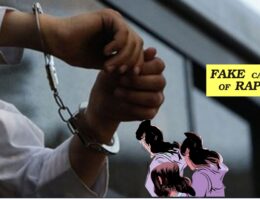Topics Included/Table of Content
- What is it about?
- Decriminalization of homosexual intercourse.
- Landmark judgment.
- Next project (legalization of same-sex marriage).
- Civil partnership.
- First Gay/Lesbian marriage.
What is it about?
In a country like India, marriage is the only legal and socially acceptable form of union between two partners. Marriage is more social than legal in nature and until modern times, many marriages that were accepted by society took place without any legal proceedings. Marriage is one of the universal social institutions established by human society to control and regulate man’s life.
The right to marry is a component of the right to life under Article 21 of the Constitution of India which says, “No person shall be deprived of his life and personal liberty except according to procedure established by law”.
A legal dictionary defines marriage as “the state of being united to a person of the opposite sex as husband or wife in a legal, consensual, and contractual relationship recognized and sanctioned by and dissolvable only by law.” Legally, marriage is a binding contract between the two parties that joins together their possessions, income, and lives.
“The denial of the right to marry to homosexual people would be in abrogation of their fundamental rights under Articles 14, 15, 19, and 21 of the Constitution.”
Decriminalization of homosexual intercourse (section 377)
In April 2016, Menaka Guruswamy along with a team of lawyers including Arundhati Katju and Saurabh Kripal filed a petition on behalf of five LGBT petitioners led by Navtej Singh Johar challenging the constitutionality of Section 377 of the Indian Penal Code, 1860.
On September 6, the Supreme Court ruled in favor of humanity by unanimously decriminalizing homosexuality, a part of the 158-year-old colonial law under Section 377 of the Indian Penal Code, India saw a new ray of hope.
Landmark Judgement:
Navtej Singh Johar vs Union of India (AIR 2018 SC 4321; W. P. (Crl.) No. 76 of 2016; D. No. 14961/2016)
Navtej Singh Johar & Others v. Union of India through Secretary Ministry of Law and Justice is a landmark decision of the Supreme Court of India in 2018 that decriminalized all consensual sex among adults, including homosexual sex.
On 27 April 2016, five people filed a new writ petition in the Supreme Court challenging the constitutionality of Section 377 of the Indian Penal Code. The petitioners were dancer Navtej Singh Johar, journalist Sunil Mehra, chef Ritu Dalmia, hoteliers Aman Nath and Keshav Suri, and businesswoman Ayesha Kapoor.
On September 6, the Supreme Court ruled in favor of humanity by unanimously decriminalizing homosexuality, a part of the 158-year-old colonial law under Section 377 of the Indian Penal Code, India saw a new ray of hope.
The court found that the criminalization of sexual acts between consenting adults violated the right to equality guaranteed by the Constitution of India. While reading the judgment, the then Chief Justice of India Dipak Mishra pronounced that the court found “criminalizing carnal intercourse” to be “irrational, arbitrary and manifestly unconstitutional”.
The court ruled that LGBT people in India are entitled to all constitutional rights, including the liberties protected by the Constitution of India. It held that “the choice of whom to partner, the ability to find fulfillment in sexual intimacies and the right not to be subjected to discriminatory behavior is intrinsic to the constitutional protection of sexual orientation”. “History owes an apology to the members of this community and their families, for the delay in providing redressal for the ignominy and ostracism that they have suffered through the centuries. The members of this community were compelled to live a life full of fear of reprisal and persecution. This was on account of the ignorance of the majority to recognize that homosexuality is a completely natural condition, part of a range of human sexuality.” said Hon’ble Justice Indu Malhotra The judgment also made note that the LGBT community is entitled to equal citizenship and protection under the law, without discrimination
The judgment is a breather for the LGBTQ community in India, who had for long faced social and state persecution due to the archaic colonial section 377 of the Indian Penal Code, forcing them to live in ignominy.
‘To deny the members of the LGBTQ community the full expression of the right to sexual orientation is to deprive them of their entitlement to full citizenship under the Indian Constitution’—Justice Chandrachud.
Civil Partnership:
A legally recognized union with rights similar to those of marriage was created originally for same-sex couples in jurisdictions where they were not legally allowed to marry.
While same-sex marriages are not legally allowed, couples can opt for a Civil Union under the Special Marriages Act 1954. With Section 377 taken off, however, many from the LGBTQIA community itself have come forth to challenge the illegality of gay marriages.
Currently, the matter of same-sex marriage is under consideration of the Delhi high court in the matter of Abhijeet Iyer Mitra vs. Union of India
Sonu and Nikesh Pushkaran, who secretly got ‘married’ at a Kerala temple in July 2018, has petitioned the Kerala High Court in order to legalize their marriage.
As of now, twenty-eight countries across the world have legalized same-sex marriages and several Western democracies accept civil unions between same-sex couples.
Guruswamy and Katju hope that with more and more young LGBTQIA couples such as the same-sex couple from Kerala approaching courts, same-sex weddings may not be such a far cry in India after all.
POV:
The refusal of the right to marry homosexual people would be the reversal of their fundamental rights under Articles 14, 15, 19, and 21 of the Constitution. Though the right to marry is not mentioned in the constitution directly, Supreme Court has recognized the right to marry under article 21 through various judgments one of them is Lata Singh vs State of U.P (2006). Where The Supreme Court held that the woman was a major i.e. above 18 years of age and she has the freedom to choose whomever she wanted to marry.
Article 14 reads as under: “The State shall not deny to any person equality before the law or the equal protection of the laws within the territory of India.”
Article 15 secures the citizens from every sort of discrimination by the State, on the grounds of religion, race, caste, sex, or place of birth or of them.
Dear readers, stay tuned for the next article. Also, if you have any queries or suggestions regarding topics or articles let me know in the comment section or mail us at lawgicalfirst@gmail.com
Source:



